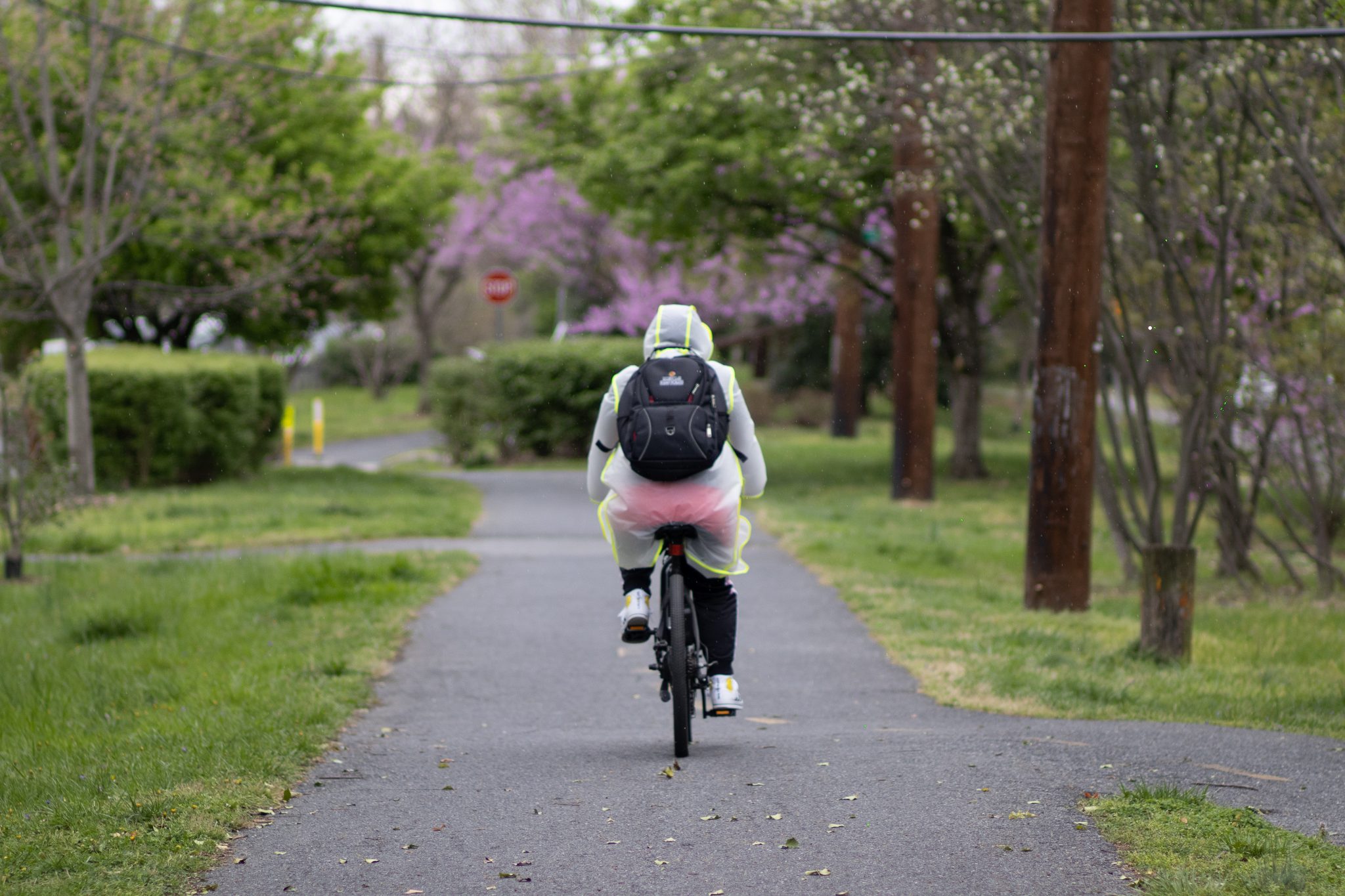Para leer este artículo en español, haga clic aquí.
College Park is expected to add protection to bike lanes along Rhode Island Avenue and conduct a study on the possibility of adding bike lanes in Old Town to increase biker safety through provisions in the 2024 fiscal year budget.
The proposed budget includes more than $624,000 for building safety barriers along Rhode Island Avenue’s bike lanes, between Muskogee Street and Greenbelt Road, and $45,000 to evaluate how adding one-way streets, sidewalks and bike lanes in Old Town could affect traffic flow and parking.
District 3 city council member Stuart Adams hopes the measures will bridge the gap between resources available for drivers and bikers.
“When you prioritize vehicles, you are prioritizing a certain set of demographics,” Adams said. “When you prioritize bike lanes, you’re prioritizing another set…we need to put everybody on equal footing when we make these decisions.”
Currently, bike lanes on Rhode Island Avenue are unprotected, meaning there are no barriers between the lane and the main road to prevent vehicles from drifting into the bike lane.
Improving pedestrian and bike access to Rhode Island Avenue was a priority for the city after it assumed ownership of Rhode Island Avenue from Prince George’s County in 2021, according to District 3 city council member John Rigg.
“We advocated strenuously enough that the county thought it might be easier if we just simply assumed ownership for that particular roadway,” Rigg said.
[Affordable housing, noise pollution take center stage at College Park mayoral debate]
Both projects are designed to support existing bike infrastructure and address residents’ complaints that transportation in College Park is difficult for those who do not rely on cars.
Alaina Pitt proudly does not own a car and relies on bikes for transportation. But after living in College Park for two years, Pitt recently moved to Washington, D.C., after becoming convinced the area’s move toward safer bike infrastructure was happening too slowly.
“It just feels like every turn in the county just doesn’t want to make the improvements that I would love to see,” Pitt said.
Similarly, Sid Gupta, a sophomore public health science major, decided to leave his bike at home this year after using it extensively on campus during his freshman year.
Increased construction on campus and this university’s efforts to keep bikes off sidewalks made biking more difficult for Gupta and other students this year, he said.
In addition to the two measures proposed in next year’s budget, two other state-funded bike lane projects in College Park are expected to be completed in the next three years.
[Activists criticize Prince George’s County Council bill pausing townhome development]
As part of the Purple Line’s construction, a 10-foot wide bike lane will be built along the south side of Campus Drive, between Presidential Drive and Route 1. The bike lane is expected to be completed when the light-rail system’s service begins in 2026. The Maryland Department of Transportation is also slated to complete a 1.4-mile bike lane, along Route 1, from College Avenue to University Boulevard by summer 2023.
Adams emphasized that although these projects will help bikers, there is still a long way to go before the city has sufficient infrastructure for bikes.
“I think we will still be needing significantly more improvements to really achieve what many of us like to have in terms of safe biking and sidewalks in College Park,” Adams said.
The city council is set to adopt its 2024 budget proposal on May 24.



